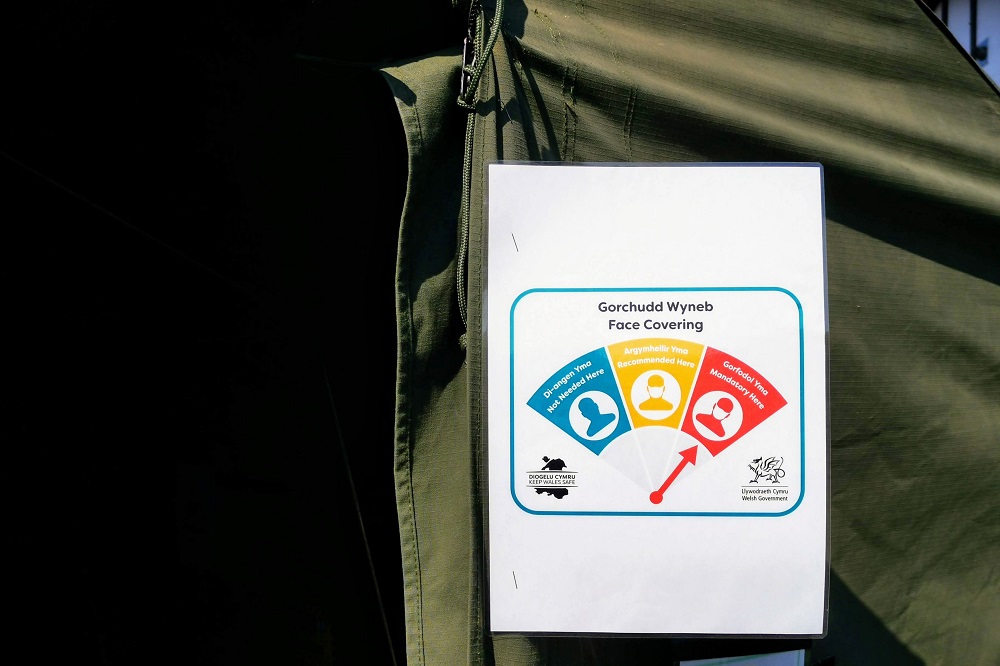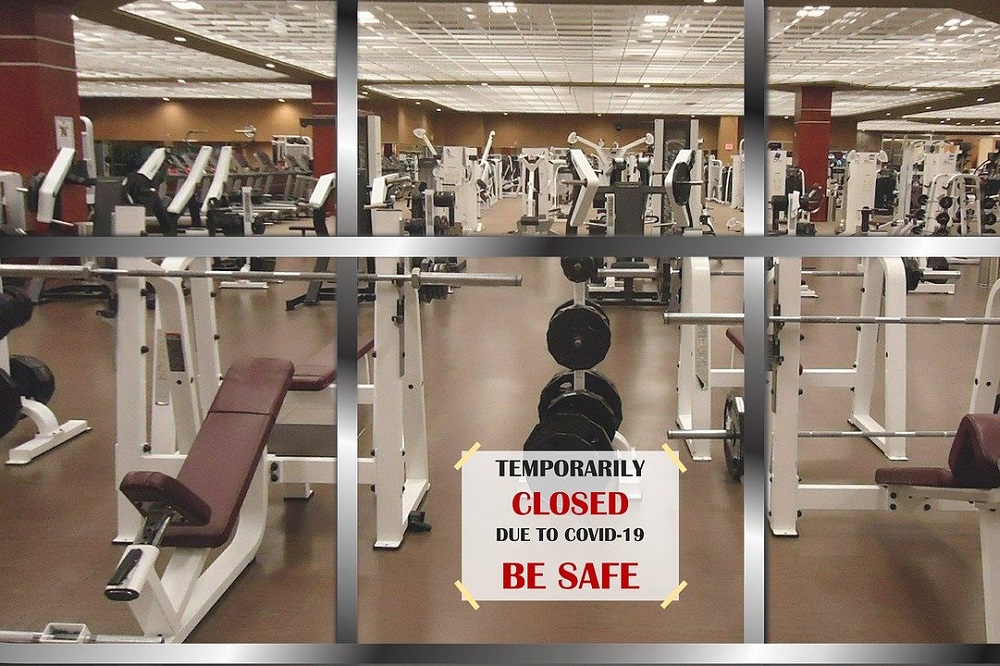News in brief: Covid infection rates jump in Merthyr Tydfil and RCT as surge continues

Public Health Wales has confirmed a further 21 people have died after testing positive for coronavirus in the last 24 hours, taking the total number of deaths in Wales since the start of the pandemic to 1,848.
Twelve deaths were in the Aneurin Bevan health board area, with another three in Swansea Bay. Betsi Cadwaladr, Cwm Taf Morgannwg and Cardiff and Vale health board areas each recorded two deaths.
PHW also reported 1,375 new cases since yesterday.
Cardiff registered the highest number of new infections in Wales with 195, followed by Swansea with 160, Rhondda Cynon Taf with 151, Wrexham with 80, and Neath Port Talbot with 77.
There were also 67 new positive tests in Merthyr Tydfil, which has the highest infection rate in Wales. Today’s cases have seen the number of infection per 100,000 people over the last week jump to 523.8, up from 487.4 on Wednesday.
Rhondda Cynon Taf had the second-highest infection rate with 463.4 cases, up from 458.8 on Wednesday, while Blaenau Gwent was third with 420.8.
Merthyr Tydfil and RCT both have the highest rate of positive tests in Wales over the last seven days at 25% per 100,000 tests carried out.
PHW also confirmed that a further 48 workers at a food factory in Bedwas have tested positive for coronavirus.
A testing unit was set up at Peter’s Food Service last week after 19 employees were found to have the virus.
The new cases were revealed after more than 600 people were tested.
In a statement the company said: “Peter’s focus is and will continue to be safeguarding the health of all colleagues.”
“It is key that everyone, both in and outside of work, comply with social distancing measures to avoid transmission in the factory environment and at home to their family members.”

Independent review recommends scrapping next summer’s exams
An independent review panel has advised the government that next summer’s exams in Wales should be scrapped in favour of assessments due to the coronavirus pandemic.
The panel, appointed by the Welsh Government, said any form of exams in 2021 would be unfair.
Last summer results were awarded grades based on teacher’s assessments but an algorithm was applied to A-level grades to “standardise” them, resulting in 42% of candidates receiving grades lower than the teacher assessments and sparking a political row.
A separate review published today by examinations regulator Qualifications Wales, said GCSE exams should be scrapped but some A-level papers should remain.
Welcoming the independent review Plaid Cymru Shadow Minister for Education, Siân Gwenllian MS said: “Plaid Cymru has repeatedly made the case to replace 2021 exams with centre assessment grades. It is welcomed that the Independent Review Panel also comes to this conclusion and the Minister must heed this advice.
“Theirs is a proposal that places the wellbeing of the learner at the heart of the system and recognises the devastating impact of the pandemic on this cohort.
“With the recommendations from Qualifications Wales being published on the same day, the Education Minister now has two pieces of advice in front of her that differ in one very important aspect: Qualifications Wales recommends replacing timetabled exams with ‘external unit assessments.’ Surely this is exams by any other name?
“So many learners have faced prolonged absences from school due to self-isolation, nervousness in attending school in areas of high prevalence, or being ill themselves. A ‘one size fits all’ exam approach is not what this cohort needs right now.
“The Independent Review Panel raises important questions about the fairness of the current exam-based approach, and the need for a better ‘whole programme’ approach to oversight and delivery. It is my belief that the Education Minister should accept all the recommendations from the Independent Review Panel and reject those from Qualifications Wales.”
In contrast, Welsh Conservative Shadow Education Minister, Suzy Davies MS, welcomed the review by Qualifications Wales and called on Education Minister Kirsty Williams to ensure that there is confidence in the system for exams to go ahead next year.
“It really isn’t helpful that these two reviews solve nothing, with both fundamentally disagreeing with each other,” she said.
“I hope that the Education Minister shows some leadership on this issue, unlike earlier in the year when she pushed decisions onto teachers and school leaders instead of leading from the front.
“Qualifications Wales are clear that no national moderation system can be tested and be ready in time to bring confidence to centre-assessed grades. As they and the WJEC would be responsible for creating and implementing such a system, if they say it can’t be done, then we need to listen. The last thing we need is another system which everyone thinks is fair but turns out to be anything but.
“However, while I’m pleased to see that exams still feature strongly in the Qualifications Wales findings, I’m sure school leaders, parents and pupils will want to know which of the various combinations, that Qualifications Wales suggest, will command the greatest public confidence. They don’t have time for any cul-de-sacs when it comes to planning the way ahead.
“I look forward to hearing the Minister’s conclusions but reiterate my call to her that she needs to give decisive leadership on this issue. We can’t let another cohort of young people face the anxiety about their futures that students this year went through.”
Kirsty Williams said she would consider both recommendations and announce a decision on 10 November.

£300 million phase of Economic Resilience Fund opens for applications
The third phase of the Welsh Government’s Economic Resilience Fund (ERF) is now open for applications.
Last week the Welsh Government announced it was doubling this phase of the fund, making nearly £300 million available to support businesses that continue to be affected by COVID-19.
To date, the fund has supported more than 13,000 businesses and according to government figures has helped to protect in excess of 100,000 jobs which might otherwise have been lost due to the economic impact of the pandemic.
The ERF is part of Welsh Government’s £1.7 billion plus support package for businesses and complements support schemes available from the UK Government.
The latest phase of the ERF will see:
- Micro businesses, SMEs and larger firms able to apply for funding from the £100 million Business Development grant fund. £20 million of this is ring-fenced for tourism and hospitality businesses.
- Payments of up to £5,000 for retail, hospitality and leisure businesses that are required to close and which occupy a property with a rateable value of between £12,001 and £51,000. Businesses will be automatically eligible for this funding, but will need to register and update their details via Business Wales or their Local Authority to receive it.
- Payments of £1,000 for businesses that are eligible for Small Business Rates Relief (SBRR) and occupy a property with a rateable value of £12,000 or less. While a business will be automatically eligible for this payment, they will need to register and update their information and bank details via Business Wales or their Local Authority to access funding. Businesses qualifying for this grant will also be able to apply for additional support if they have been forced to close during fire break. Qualifying businesses subject to local restrictions prior to the fire break will also be able to apply for an additional amount of financial assistance.
- Eligible businesses that do not qualify for business rates linked grants are able to apply for awards of up to £2,000 from a £25 million discretionary fund via their local authority.
Business can get more information and to apply for funding here.

New support for vulnerable families and children unveiled
A £12.5 million package of funding to support vulnerable children and families has been announced by Julie Morgan, Deputy Minister for Health and Social Services.
The money will support a range of services for children and families whose lives have been affected by the ongoing coronavirus pandemic.
Funds will also be allocated to explore the development of Wales’ first Family Drug and Alcohol Court, in line with a recommendation from the Commission on Justice in Wales.
The £12.5m package includes:
- £2m for the Child Development Fund to provide additional support for children and families to address concerns around developmental delays in areas such as speech, language and communication, motor skills, and personal and social development
- £800,000 for families experiencing difficulties in their relationships to help resolve conflict and family stress
- £860,000 to improve the quality of services being offered to families in Flying Start areas.
The funding will also include investment in social service support for families to stay safely together and to further develop the capacity of Wales’ foster care provision.
This includes:
- £1.6m for local authorities to assist in the safe resolution of cases prior to reaching child protection registration
- £2.2m to local authorities to support the development of an enhanced or remodelled Family Group Conferencing provision
- £3m to help relieve case backlogs and support people leaving care, and to support scoping work to develop a Family Drug and Alcohol Court model for Wales
- £320,000 to support the National Fostering Framework for Wales.
Announcing the funding, Julie Morgan, said: “Coronavirus has had – and continues to have – a profound and ongoing impact on all aspects of our lives. For children, and some of our most vulnerable children, young people and families, the impact of the virus and the challenges they face are far greater.
“To help address those challenges and meet these needs, I am today announcing a significant package of funding. This is very much part of our Covid-19 Reconstruction: Challenges and Priorities agenda which the Counsel General and Minister for European Transition Jeremy Miles set out earlier this month.
“This will ensure that children, young people and families in Wales will receive the support they need during these very challenging and extraordinary times.”
Support our Nation today
For the price of a cup of coffee a month you can help us create an independent, not-for-profit, national news service for the people of Wales, by the people of Wales.





